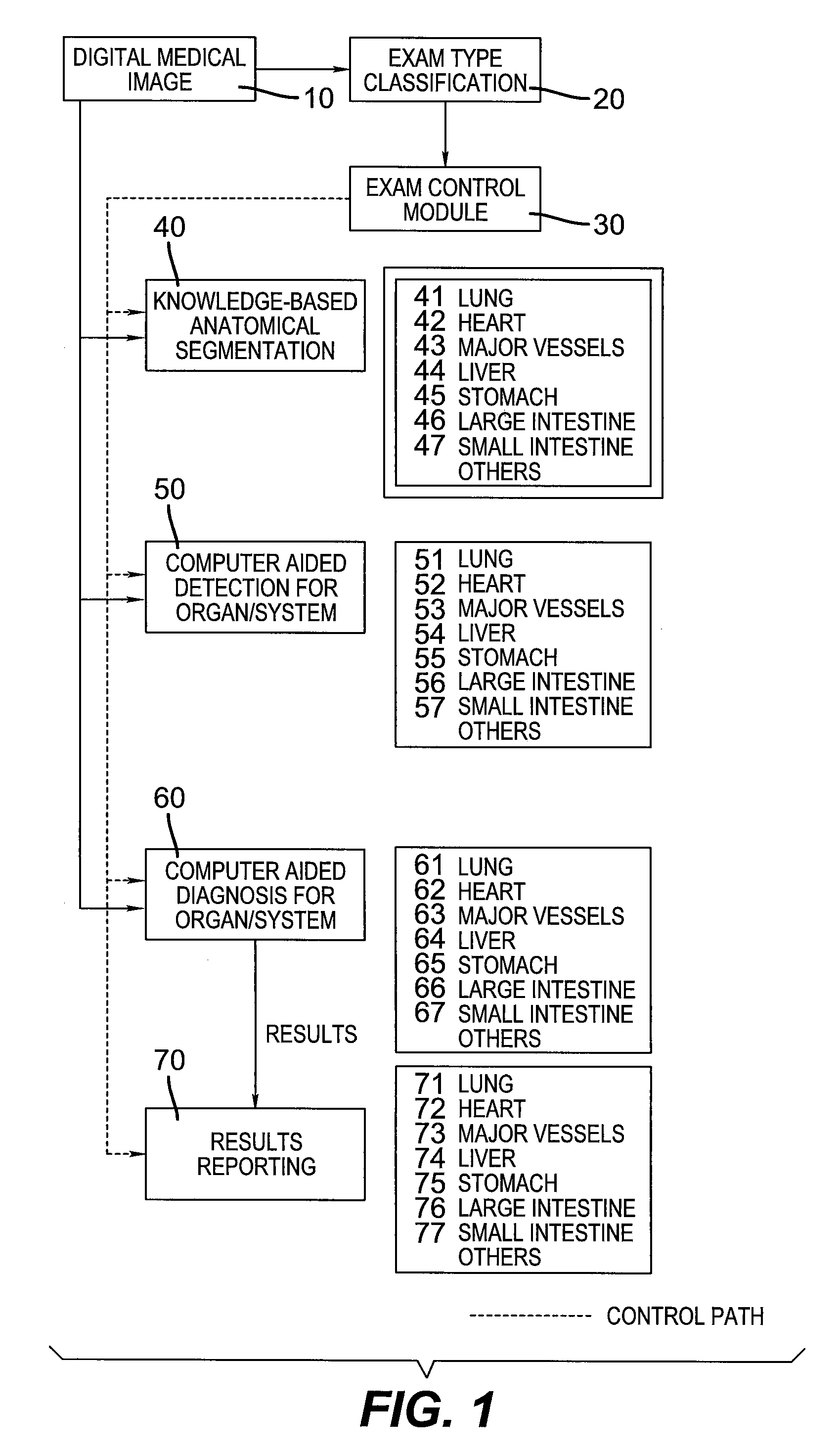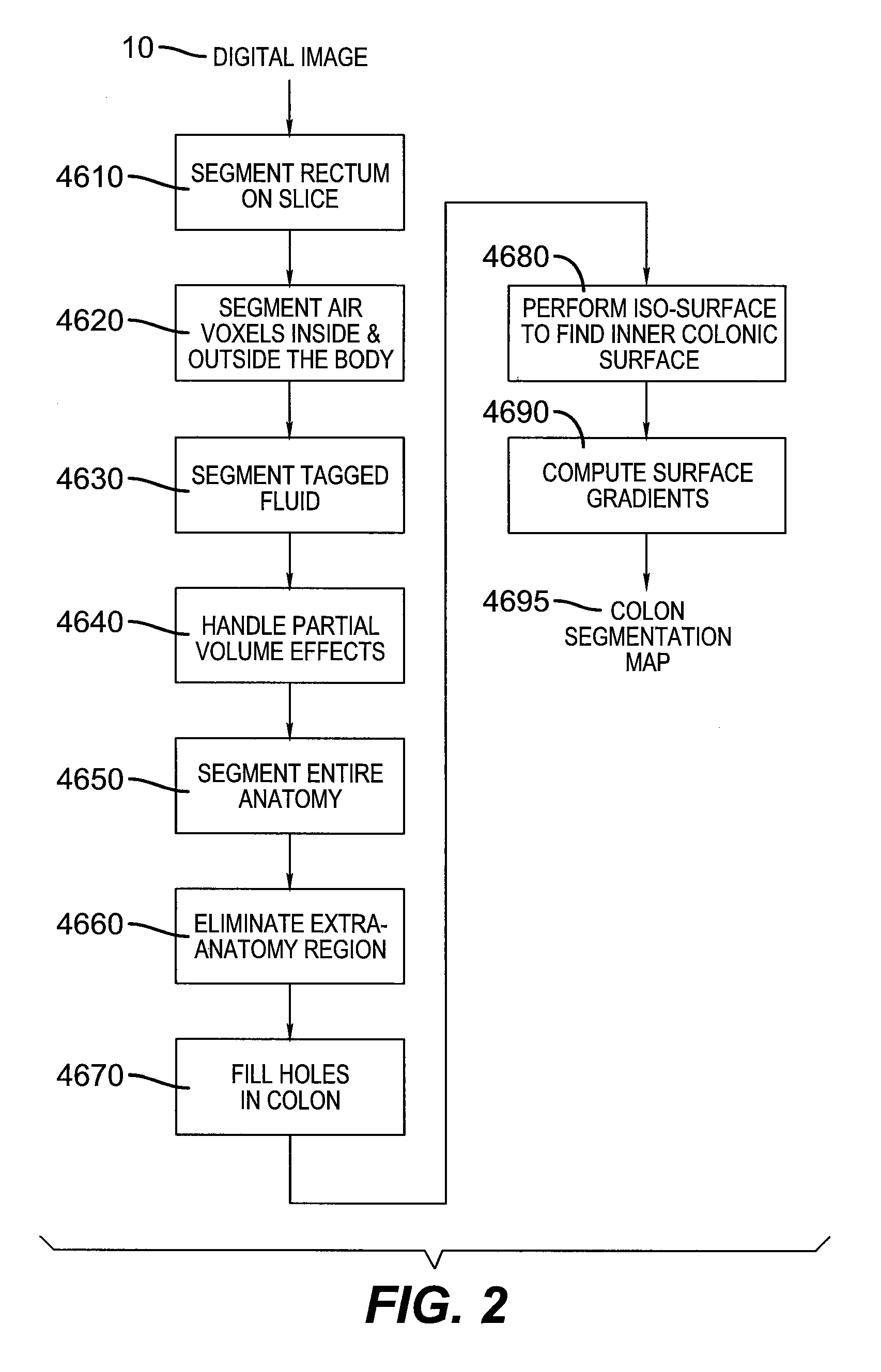Computer aided disease detection system for multiple organ systems
a disease detection and computer-aided technology, applied in the field of digital medical image processing, can solve the problems of increasing the demands and difficulty of physician interpretation of images, increasing the shear quantity of image data, and affecting the accuracy of diagnosis, so as to reduce the reading time
- Summary
- Abstract
- Description
- Claims
- Application Information
AI Technical Summary
Benefits of technology
Problems solved by technology
Method used
Image
Examples
Embodiment Construction
[0025]The following is a detailed description of the preferred embodiments of the invention, reference being made to the drawings in which the same reference numerals identify the same elements of structure in each of the several figures.
[0026]FIG. 1 shows a block diagram of the present invention. With reference to this figure, a digital medical image 10 is presented to the method. This image can be created by any of the well-known methods currently practiced in the medical field, e.g. computerized tomography. The image is preferably represented in the industry standard DICOM format.
[0027]A first stage of processing involves an optional exam-type classification step 20. The purpose of this step is to determine the specific patient anatomy that is present in the digitized image so as to direct the remaining processing to the specific organs or organ systems that are present in the image. For example, thoracic CT images contain information about patient lungs, heart, and major blood v...
PUM
 Login to View More
Login to View More Abstract
Description
Claims
Application Information
 Login to View More
Login to View More - R&D
- Intellectual Property
- Life Sciences
- Materials
- Tech Scout
- Unparalleled Data Quality
- Higher Quality Content
- 60% Fewer Hallucinations
Browse by: Latest US Patents, China's latest patents, Technical Efficacy Thesaurus, Application Domain, Technology Topic, Popular Technical Reports.
© 2025 PatSnap. All rights reserved.Legal|Privacy policy|Modern Slavery Act Transparency Statement|Sitemap|About US| Contact US: help@patsnap.com



